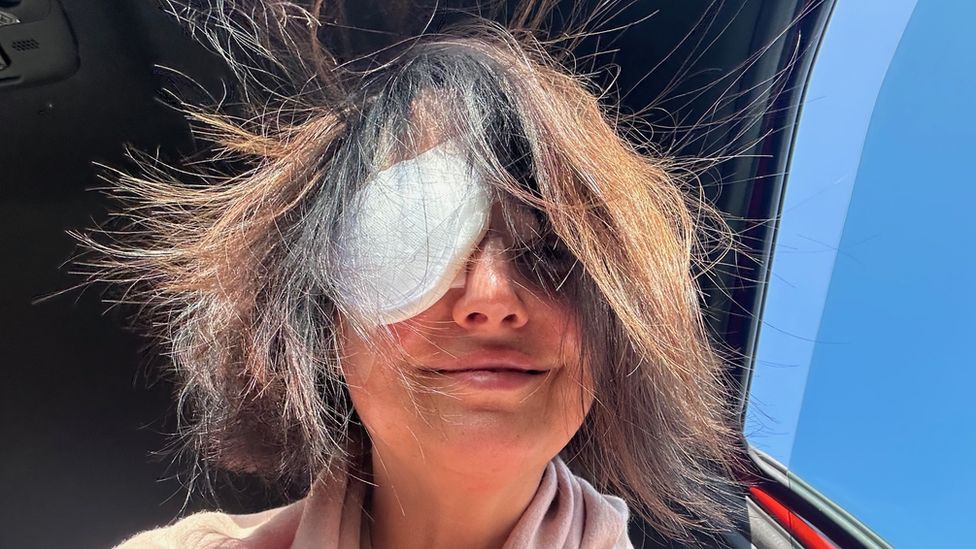-

-
-
Loading

Loading

I must confess that I haven't been diligent about going to the opticians regularly, even though I have been wearing contact lenses since I was 16. I would often forget to book my annual check-up, until I realized that it had been three years since my last appointment. However, that won't be the case anymore because what I thought was a routine check-up turned into emergency surgery that saved the sight in one of my eyes. In June, I started experiencing occasional white flashes in my right eye, especially when I looked to the side. It didn't happen too often, maybe once or twice a day, so I didn't think much of it and didn't rush to get it checked out. I did some research online and thought it might be a common age-related issue or possibly a detached retina. Brushing it off as a consequence of aging, I didn't pay it much attention. A few weeks later, when the flashes continued randomly and I realized I had lost both my pairs of glasses, I decided to book an appointment at my local optician. I was vaguely concerned about wearing my contact lenses too much, so I thought I would also mention those white flashes. Sitting in the optometrist's chair, I still didn't have any major concerns. Even failing to read the letters on the chart was nothing out of the ordinary for me. However, I noticed that the optometrist kept examining my right eye, using bright lights and a magnifying lens. He explained to me that my retina was in the process of detaching and the flashes had been a warning sign. He told me that there was a chance of rapid detachment, and once that happened, there would be no way to repair it. I would lose the sight in that eye. It was a shock, going from looking forward to new glasses to facing the possibility of blindness. The optometrist immediately contacted the hospital and arranged an emergency appointment for me. I was told that I would likely have surgery the following day. My mind was racing, and I found it difficult to process everything. I couldn't help but worry about how I would cope and if I would be able to continue working and reading. Suddenly, I realized how precious my vision was, something I had taken for granted all these years. The surgery lasted about 40 minutes, and I was in and out of the hospital within a few hours. I had to spend the next week lying on my side, and then it was a waiting game for my vision to return to normal. It took about three months, during which I felt disoriented and unable to venture outside for the first six weeks. But as my vision improved, so did my confidence to get back on my feet and resume my normal activities. I consider myself incredibly lucky that I acted swiftly and went to the opticians when I did. They were able to respond promptly, preventing the worst outcome. The NHS emphasizes the importance of treating a detached retina quickly, and symptoms to watch out for include floaters, flashes of light, a "curtain" or shadow over the vision, and changes in sight. With surgery, vision deterioration can usually be stopped, and most people are able to return to their normal activities. Now, the Welsh government is launching a campaign to promote eye health checks. Optometrists on the high street will have expanded abilities to treat and monitor various eye conditions, aiming to alleviate the strain on hospital eye services and reduce waiting times. This means that patients can expect quicker and more convenient eye care closer to home. The main change is that optometrists with additional qualifications can now prescribe medication for common eye conditions like uveitis and conjunctivitis. Health Minister Eluned Morgan recognizes the pressure on NHS eye services and believes that utilizing the skills of optometrists in the community can help ease the burden. Eye checks can also identify underlying health issues such as diabetes, glaucoma, and myopia. Regular check-ups can lead to early detection and prevention of these conditions. The Welsh Conservatives, however, argue that the reforms must prioritize patient needs, as there are currently 75,000 people waiting beyond the target time for eye care.